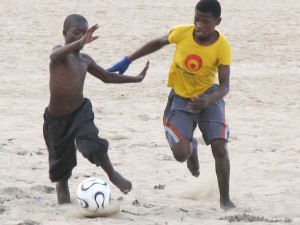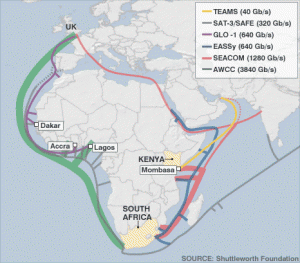Disputes over land are occurring all over the world. In Tanzania the land rights issue of most significance at present, which is attracting the greatest interest among human rights activists and overseas donors, is the long standing dispute over land occupancy in part of the Loliondo Game Controlled Area (LGCA). Exacerbating the whole situation is the serious drought which has been affecting the area for some time.
Hunting
In 1992 the government leased over 4, 000 square kilometres of the LGCA to the UAR Sheikh, Brigadier Mohammed Abdulrahim Al-Ally, for hunting purposes through the Ortello Business Corporation (0BC). It is understood that members of various Arab royal families and businessmen spend weeks in Loliondo each year, hunting antelopes, lions, leopards, and other wild animals. The company wants the villagers evicted from the area ‘under their control’ for the good of the ecosystem and to make it possible for hunting activities to run smoothly.
However, the villagers have vowed not to leave what, in their view, is the rightful land of their ancestors. Since the lease was signed there has been a gradual eviction of the largely Maasai pastoralists resident there. However, things came to a head in July 2009 with reports that the government’s police field force unit had set fire to as many as 200 extended homesteads displacing an estimated 2 – 3,000 people from homes they had occupied for many years. Some being burnt down allegedly to protect the company’s right to the land.
This provoked a public outcry.
Protest on completion of Danish-aid project
Danish Ambassador to Tanzania, Bjarne Sorensen addressed hundreds of pastoralists in the district at the handing over of the ‘Ngorongoro Pastoralist Project ‘Ereto’, a 15-year project that had aimed to fight poverty and improve the lives of the people in Ngorongoro. The project has recorded significant progress in key issues like water supply, animal health-care, restocking livestock, establishing women’s economic groups and HIV/Aids awareness. The Ambassador said that through consultation with others, he had been able to see and hear that evictions and burnings of bomas did indeed take place. “I would like the Government to be open in this dialogue to secure the rule of law.” The violent evictions had overshadowed the support Denmark had been providing to the Maasai communities in the area. Sorensen criticized the Government for not ending the evictions and added that the evictions were a matter of great concern to the Danish people, European Union member states and the African Commission on Human Rights. “ I call on the Government to stop all the evictions and associated actions,” he said. “With regret” he went on “it seems that our support to Loliondo District through ‘Ereto’ has failed as, apparently, an environment of fear and intimidation now seems to exist.” However, the ambassador said he remained convinced that the government would continue to support sustainable improvement where conservation and development were promoted hand in hand.
Later, over 50 victims of the forced evictions, at a meeting in Dar es Salaam, urged the Government to immediately stop the operation and help them with basic needs like water, food and health facilities. They lashed out at the government for treating them inhumanely and accused the police and district authorities of teaming up with OBC to illegally remove them from their ancestral land.
Government reaction
Natural Resources and Tourism Minister Shamsa Mwangunga said that investigations had begun to establish the root cause of the problem and find a lasting way out. She was officiating at the handing over ceremony of the Danish aided project. She called on all concerned “to have trust in the government’s intentions” of ensuring that justice would be done. It was part of the government’s responsibility to ensure that legal investments were adequately protected while also safeguarding the interests of wananchi “without allowing a few individuals, organisations or institutions to foment unrest.” She revealed that the government would very soon embark on land use planning in Ngorongoro District, ‘with a view to clearly demarcating land for use by local residents and as wildlife protected areas’.
Parliamentary investigation
As concern mounted, parliament resolved that an investigation would be conducted by one of its committees in the eight villages which were affected by the eviction operation. Then local human rights activists under the Feminist Activists Coalition (FemAct) expressed their intention to offer legal aid to the victims in litigation against the government. 100 witnesses had been lined up to testify. “We will file a criminal case against those who were involved in the burning of kraals and harassment of Maasai residents in the area, and a civil case to seek compensation for property which was destroyed during the operation,” they said.
On September 12 disgruntled villagers staged a peaceful march to the State House in Dar es Salaam for an audience with President Kikwete but their mission was not successful. The African Commission on Human and Peoples’ Rights has also sent a written request to President Kikwete to intervene – from the Guardian and many other sources.




